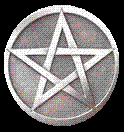|
(Cinnamomum verum or zeylanicum)
A tropical evergreen
tree up to 50 feet tall. Cinnamon sticks are quills from the inner bark and the essential oil is distilled by water or steam
from the leaves and twigs.
Medicinal Uses:
Considering that cinnamon
is probably one of the most aromatic of the spices, it is surprising how few powers it has been considered to have.
It is a carminative, astringent, stimulant, and antiseptic; more powerful
as a local than as a general stimulant; is prescribed in powder and infusion but usually combined with other medicines. It
stops vomiting, relieves flatulence, and given with chalk and astringents is useful for diarrhoea and haemorrhage of the womb.
The oil in cinnamon is a type of phenol
which is anti-fungal and anti-bacterial, slowing meat to spoil, so its use as spice for meat dishes, especially in warmer
climates is sensible.
Caution:
Do not use cinnamon in cases of high pitta
Cinnamon will aggravate bleeding, and can be a skin irritant and a convulsive
in high doses.
Cinnamon Bark Oil in particular can be an irritant and is not recommened
for use on the skin.
Cinnamon infusions should not be given to children under two .
Magickal Uses:
Cinnamon oil was used
as part of a holy anointing oil by the ancient Hebrews. The leaves of the cinnamon tree were woven into wreaths which were
used to decorate ancient Roman temples. The Egyptians used cinnamon oil during the mummification process.
Cinnamon, when burned
as an incense, raises high spiritual vibrations, aids in healing, draws money, stimulates psychic powers and produces protective
vibrations. Cinnamon is also used in making sachets and infusions for the purposes.
|

